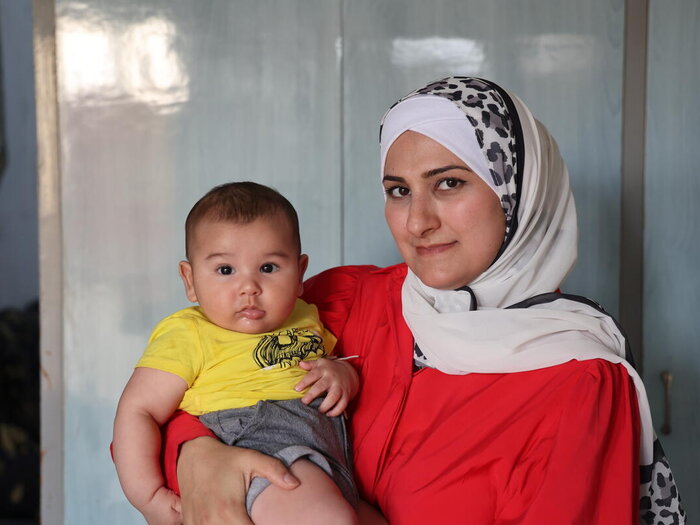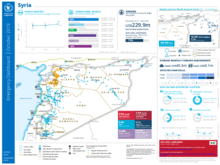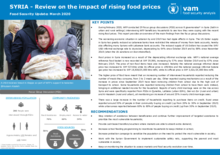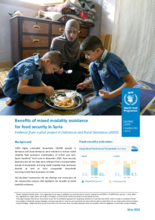Syrian Arab Republic
- 12.9 million
- people are food insecure
- 2.6 million
- people are at risk of hunger
- 6.7 million
- people are internally displaced
Over a decade of conflict, coupled with consecutive economic and other shocks, has led to unprecedented hardship. Devastating earthquakes hit north and west Syria in February 2023, leaving exhausted families with next-to-nothing.
A total 12.9 million people are estimated to be in the grip of hunger in 2024, and 2.6 million are at risk of hunger. Child hunger is widespread, with 1 in every 3 schoolchildren going to school without breakfast, 8 in 9 not meeting their minimum nutrition requirements, and 1 in 5 living with iron deficiency. Maternal malnutrition is also at alarming rates.
WFP was forced to end the general food assistance programme at the end of 2023 due to funding shortfalls. This was a last resort and has affected 3.2 million people.
WFP is committed to fighting hunger in Syria and to continuing advocacy efforts on behalf of Syrians grappling with hunger every day. We call on international partners to step up their support needed to reach those most in need of urgent food and nutrition assistance.
What the World Food Programme is doing in Syria
-
Food assistance
-
The end of the food-assistance programme will affect the 3.2 million people who continued to receive this support after July 2023, when WFP had to reduce its caseload from 5.5 million – also because of funding shortfalls. All other programmes of WFP, including school meals, nutrition prevention and treatment, and early recovery, continue at similar levels.
-
Nutrition
-
WFP's nutrition programme supports over 300,000 pregnant and breastfeeding women, girls and children aged 6 months to 2 years across all 14 governorates, to prevent and fight malnutrition. It provides supplementary food and value vouchers to diversify diets and improve nutrition.
-
School meals
-
WFP provides fortified snacks and fresh meals to 600,000 schoolchildren in Syria, along with electronic vouchers for their families to redeem at stores. This helps address education challenges and prevent micronutrient deficiencies and short-term hunger. The school meals programme employs vulnerable women, many widowed by the conflict, and provides them with training and an income so they can support their families.
-
Livelihoods and resilience
-
WFP supports Syrian families in restoring their livelihoods and improving their food security and resilience, through restoring infrastructure such as irrigation canals and bakeries. This has a significant return on investment, where just US$14 million can irrigate 28,000 hectares of land, help 600,000 people transition off food assistance, create jobs for 84,000 people and increase wheat production by 90,000 tones.
Syrian Arab Republic news releases
Go to pageFind out more about the state of food security in Syrian Arab Republic
Visit the food security analysis pageOperations in Syrian Arab Republic
Contacts
Office
Mezzeh, Damascus, Syria
Damascus
Syria




